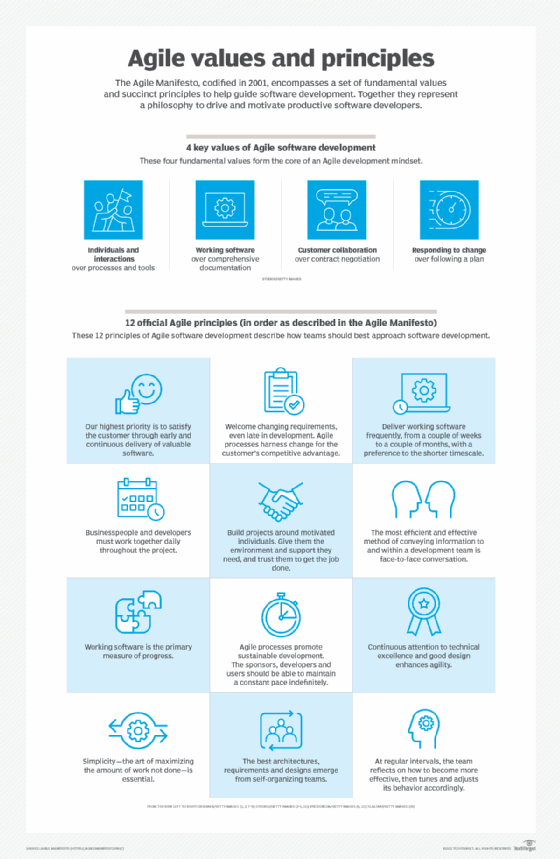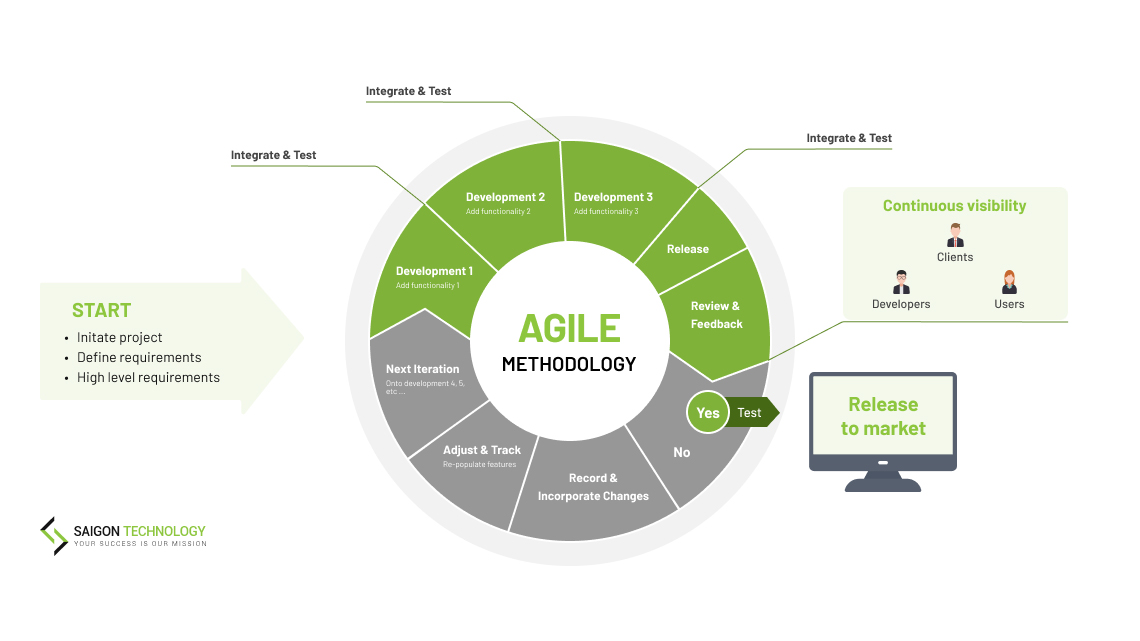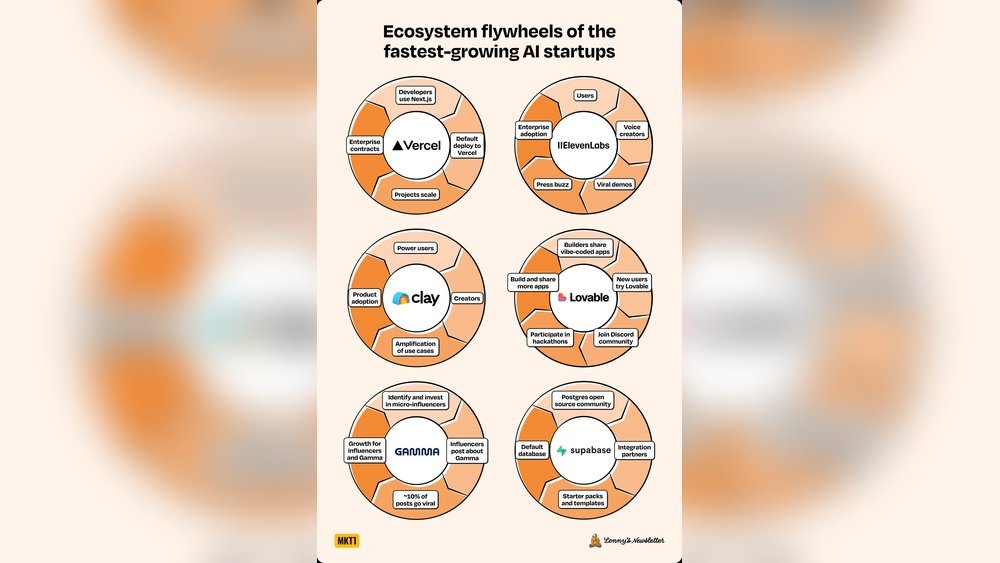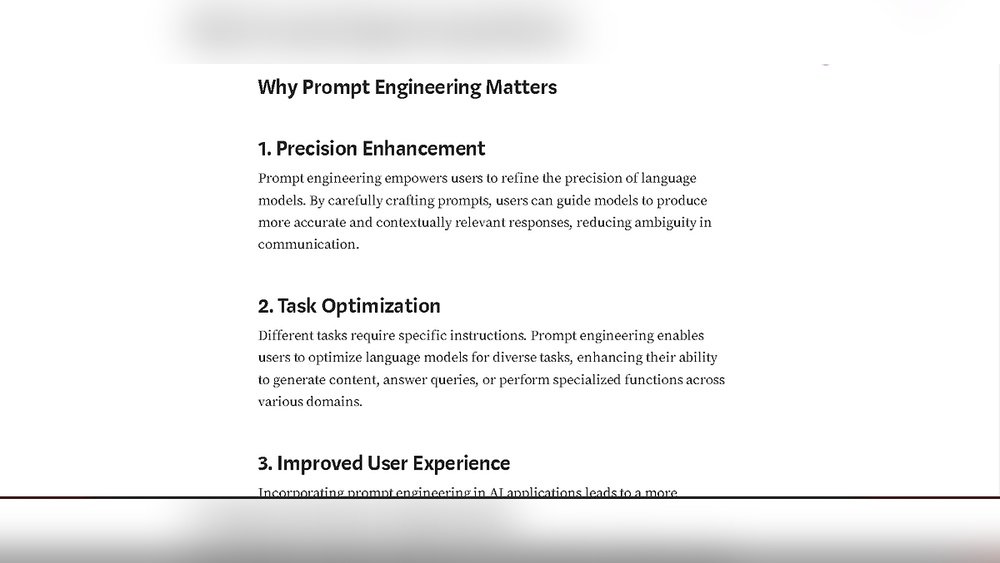Agile software development services transform the way projects are managed. They offer flexibility and adaptability for teams and projects.
In today’s fast-paced tech world, staying agile is key to success. Businesses need solutions that adapt quickly to change. Agile methods prioritize collaboration and customer feedback. This approach helps teams deliver high-quality software faster and with fewer errors. It emphasizes ongoing improvement and responsiveness to customer needs.
With agile services, companies can better meet market demands. They can also improve team productivity and satisfaction. Agile development is not just a method; it’s a mindset. It focuses on people and interactions over strict processes. Discover how agile software development services can benefit your business and keep you ahead in the digital age.
Introduction To Agile Development
Agile Software Development Services focus on flexibility and collaboration, allowing teams to adapt quickly to changes. This method enhances productivity by breaking down projects into manageable chunks. It promotes teamwork and customer feedback, ensuring software meets evolving needs efficiently.
Agile Software Development has become a cornerstone in the modern tech industry, transforming how teams collaborate and deliver products. But what does Agile really entail? If you’re in search of a methodology that values flexibility, customer satisfaction, and continuous improvement, Agile might be what you’re looking for. Imagine working in a team where feedback is not only welcomed but celebrated, and where adaptability is the name of the game. This introduction will guide you through the basics of Agile Development, setting the stage for a deeper dive into its principles and practices.
###
What Is Agile?
Agile is a methodology focused on iterative development, where requirements and solutions evolve through collaboration between self-organizing teams. It’s not just a set of guidelines but a mindset that values responding to change over following a fixed plan. Agile encourages you to break down projects into smaller, manageable parts. This ensures each segment is reviewed and adjusted based on feedback. Think of it as building a puzzle piece by piece, adapting as you go.
Agile practices help teams deliver value more efficiently. You engage with customers regularly, understanding their needs and tweaking your approach accordingly. This real-time involvement can lead to better products and happier clients.
###
History And Evolution
Agile’s roots can be traced back to the early 1990s when software development faced challenges with traditional methods. The need for speed and adaptability led to the birth of Agile. In 2001, the Agile Manifesto was created by seventeen software developers who saw the need for change. They focused on values like individuals and interactions, working software, and customer collaboration.
Since then, Agile has evolved into various frameworks like Scrum, Kanban, and Lean. These frameworks offer different ways to implement Agile, yet they all adhere to its core values. Agile’s adaptability has made it popular across industries beyond software, including marketing and manufacturing.
Embracing Agile means embracing change. You’ll find that the iterative nature of Agile allows you to respond quickly to market shifts and customer demands. How would your current project benefit from such adaptability?
Agile isn’t just a methodology; it’s a journey of continuous improvement. By understanding its history and evolution, you can better appreciate why it remains relevant today.

Credit: www.techtarget.com
Key Principles Of Agile
The Agile methodology is a popular approach in software development. It focuses on flexibility and collaboration. Agile’s key principles guide teams towards efficient project delivery. These principles help in adapting to change and improving customer satisfaction.
Iterative Processes
Agile employs iterative processes in software development. Teams work in small cycles, known as sprints. Each sprint results in a functional product increment. This allows for continuous feedback and improvements. Iterations help in managing changing requirements effectively. They ensure the product evolves with user needs.
Customer Collaboration
Customer collaboration is central to Agile practices. Teams engage with customers throughout the project. This ensures the product aligns with user expectations. Frequent communication builds trust and understanding. It also allows for quick adjustments based on feedback. Engaging customers leads to a more successful product.
Agile Methodologies
Agile methodologies transform software development with adaptive and iterative processes. They focus on collaboration, flexibility, and customer feedback. Agile empowers teams to deliver high-quality software efficiently. It nurtures a culture of continuous improvement and innovation.
Scrum Framework
Scrum is a popular Agile methodology. It divides work into small, manageable units called sprints. Each sprint lasts two to four weeks. Teams plan, execute, and review their work in these time frames. Scrum emphasizes roles like Scrum Master, Product Owner, and Development Team. These roles ensure smooth workflow and communication. Daily stand-up meetings keep everyone aligned. Scrum encourages transparency and accountability.
Kanban Approach
Kanban is another effective Agile methodology. It focuses on visualizing work to improve flow. Teams use Kanban boards to track tasks. Each task moves through stages like “To Do,” “In Progress,” and “Done.” Kanban limits work in progress to avoid overload. It promotes efficiency and faster delivery. Continuous feedback is key in Kanban. This methodology adapts to changing demands swiftly.

Credit: itcraftapps.com
Benefits Of Agile Development
Agile software development services enhance collaboration and flexibility, enabling teams to deliver high-quality products quickly. This approach fosters continuous improvement through regular feedback, ensuring software meets evolving user needs. Efficient project management reduces risks and increases productivity, making agile ideal for dynamic environments.
Agile development has transformed the way software projects are executed. Embracing this methodology brings a myriad of benefits, making it a preferred choice for teams aiming for efficiency and quality.
###
Flexibility And Adaptability
Agile Software Development Services is all about embracing change. Unlike traditional methods, it thrives on flexibility. You can adjust project priorities as new information surfaces. This adaptability allows teams to respond swiftly to market shifts or customer feedback.
Consider a situation where a major competitor releases a new feature. Agile allows your team to shift focus and match the innovation quickly. Isn’t it empowering to know that your project can evolve seamlessly?
###
Improved Product Quality
Agile emphasizes quality. Regular testing is integral to the process, ensuring each product iteration is robust. By addressing issues early, you prevent major setbacks later.
Imagine discovering a critical bug weeks before launch. With agile, you spot and fix it during development cycles. This proactive approach leads to a polished final product. Wouldn’t you prefer a product that stands out for its reliability?
Incorporate agile practices into your project and witness the transformation in quality and efficiency. How will you leverage these benefits to enhance your next project?
Challenges In Agile Implementation
Agile software development services promise flexibility and speed. Yet, implementing Agile is not always smooth. Teams face several challenges. These obstacles often disrupt progress and cause frustration. Understanding these challenges is key to overcoming them.
Cultural Shifts
Adopting Agile requires a cultural shift. Traditional mindsets resist change. Teams must embrace collaboration. Hierarchical structures must evolve. Managers need to trust their teams. This shift can be difficult. People naturally resist change. They prefer familiar processes. Overcoming this requires patience and persistence.
Resource Management
Managing resources in Agile can be tricky. Agile demands flexibility. Teams need the right tools and skills. Allocating resources becomes complex. Balancing workloads is crucial. Projects often face shifting priorities. This leads to resource conflicts. Efficient planning is essential. Leaders must anticipate needs. They need to adjust quickly.

Credit: saigontechnology.com
Tools For Agile Development
Agile Software Development Services requires the right set of tools. These tools help teams stay organized, communicate clearly, and deliver efficiently. Each tool serves a specific purpose. They streamline processes and enhance productivity. Let’s explore some essential tools for Agile development.
Project Management Software
Project management software is crucial in Agile development. It helps teams plan, track, and manage tasks. Popular tools include Jira and Trello. These tools provide visual boards for task organization. Teams can easily prioritize and assign tasks. They offer features like timelines and progress tracking. This ensures timely project completion.
Communication Platforms
Effective communication is key in Agile teams. Communication platforms like Slack and Microsoft Teams are popular choices. They enable real-time conversations and file sharing. Teams can create channels for specific projects. This keeps discussions organized and accessible. Video calls and instant messaging boost team collaboration.
Agile In Different Industries
Agile software development services have transformed many industries. From tech to healthcare, Agile offers flexibility and efficiency. Different sectors use Agile to meet their unique needs. Let’s explore how Agile works in various industries.
Tech And It Sector
The tech sector thrives on innovation and speed. Agile suits this environment perfectly. It promotes quick iterations and regular feedback. Teams can adjust priorities as projects evolve. This ensures products meet user demands promptly. Agile methods like Scrum and Kanban are popular here. They help manage complex projects efficiently. Tech companies enjoy faster release cycles. This means they can stay competitive in a fast-paced market.
Healthcare And Finance
Healthcare and finance industries benefit from Agile too. These sectors need precision and compliance. Agile offers a structured approach to software development. In healthcare, Agile improves patient management systems. It enhances data accuracy and security. In finance, Agile helps with regulatory compliance. It ensures financial applications are robust and reliable. Agile’s iterative approach reduces risks. This is vital for sectors handling sensitive data.
Future Of Agile Development
The future of Agile Software Development Services looks bright and dynamic. Agile practices continue to evolve, adapting to new technologies and methodologies. Businesses are eager to harness Agile’s flexibility and efficiency. Let’s explore the trends and innovations shaping Agile’s future. We’ll also delve into the crucial role of AI and automation in this evolution.
Trends And Innovations
Agile teams are adopting hybrid methods. Combining Agile with other frameworks enhances project management. This fusion creates a more robust development process. Design thinking is also gaining traction in Agile spaces. It encourages creative problem-solving and user-centric solutions. Remote work tools are essential too. They support distributed Agile teams effectively.
Role Of AI and Automation
AI is transforming Agile in unprecedented ways. It offers predictive analytics for better decision-making. AI tools can analyze data swiftly, providing insights into project trends. Automation is streamlining repetitive tasks. This allows teams to focus on more complex work. Automated testing accelerates the development cycle. It ensures high-quality software delivery consistently.
Frequently Asked Questions
What Is Agile In Software Development?
Agile in software development is a methodology focusing on iterative progress, collaboration, and flexibility. Teams work in short cycles, called sprints, to deliver incremental improvements. Agile promotes customer feedback, adaptability, and continuous improvement, enhancing project efficiency and product quality. It supports rapid response to change and evolving project requirements.
What Are The 4 Types Of Agile Methodology For Software Development?
Agile methodology includes Scrum, Kanban, Extreme Programming (XP), and Lean. Scrum focuses on sprints and team roles. Kanban uses visual boards for workflow management. Extreme Programming emphasizes high-quality software through frequent releases. Lean aims to optimize efficiency and eliminate waste.
Each method enhances collaboration and adaptability in software development.
What Are Agile Services?
Agile services involve flexible, iterative processes for project management, emphasizing collaboration, adaptability, and continuous improvement. Teams deliver small, functional segments quickly, responding efficiently to changes. This approach boosts efficiency, customer satisfaction, and product quality. Agile methodologies include Scrum, Kanban, and Lean, prioritizing client needs and feedback throughout the development cycle.
What Are The 5 C’s Of Agile?
The 5 C’s of agile are Communication, Collaboration, Commitment, Creativity, and Continuous Improvement. These principles enhance team efficiency, ensure project success, foster innovation, and drive better outcomes in agile methodologies. They are essential for maintaining a dynamic and responsive work environment.
Conclusion
Agile Software Development Services offers flexibility and speed. Teams adapt to changes quickly. This approach enhances productivity and collaboration. Projects finish on time with fewer errors. Businesses gain competitive advantages. Agile methods ensure customer satisfaction through continuous feedback. Developers stay focused on delivering quality solutions.
Risk management improves with frequent assessments. Agile empowers teams to innovate. It supports evolving business needs effectively. Consider agile for your next project. It might be the right fit. Embrace the benefits of agile development today. It could transform your software process into a smoother, more efficient journey.






